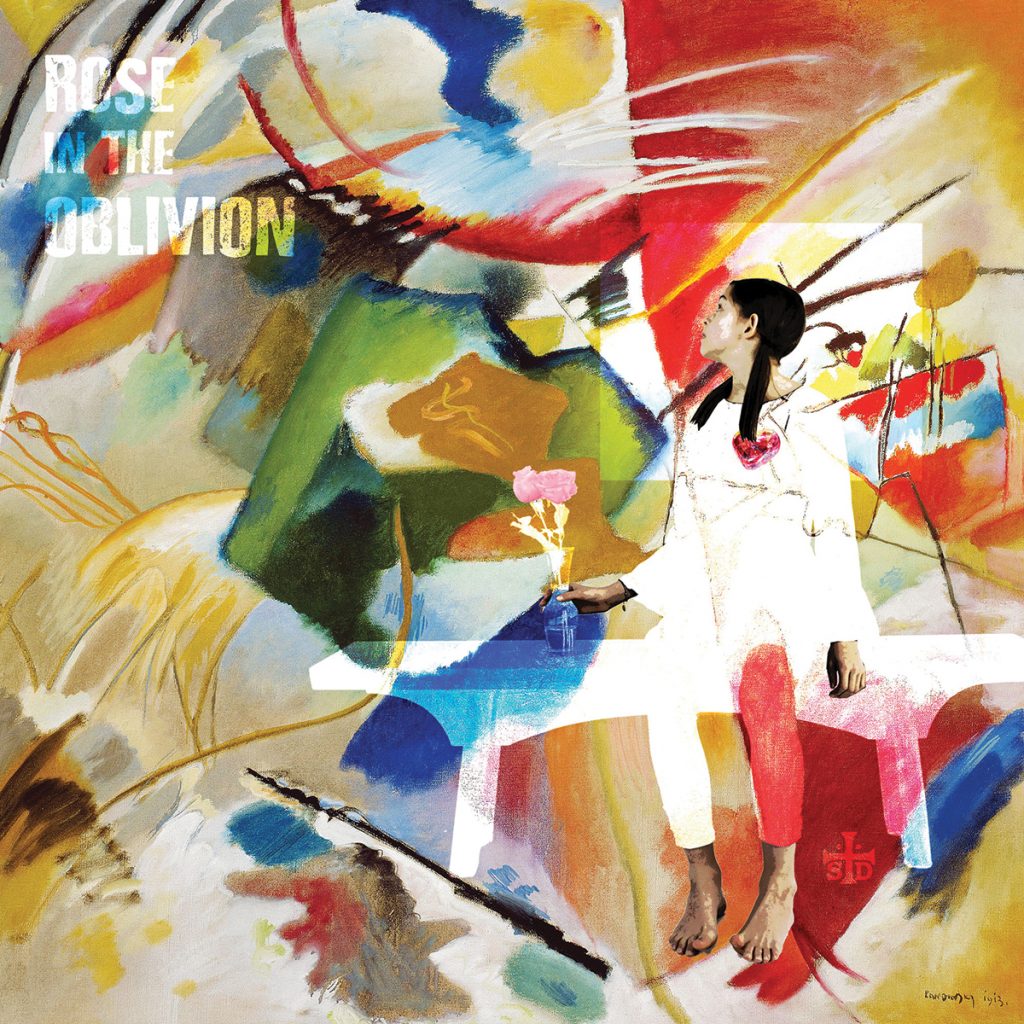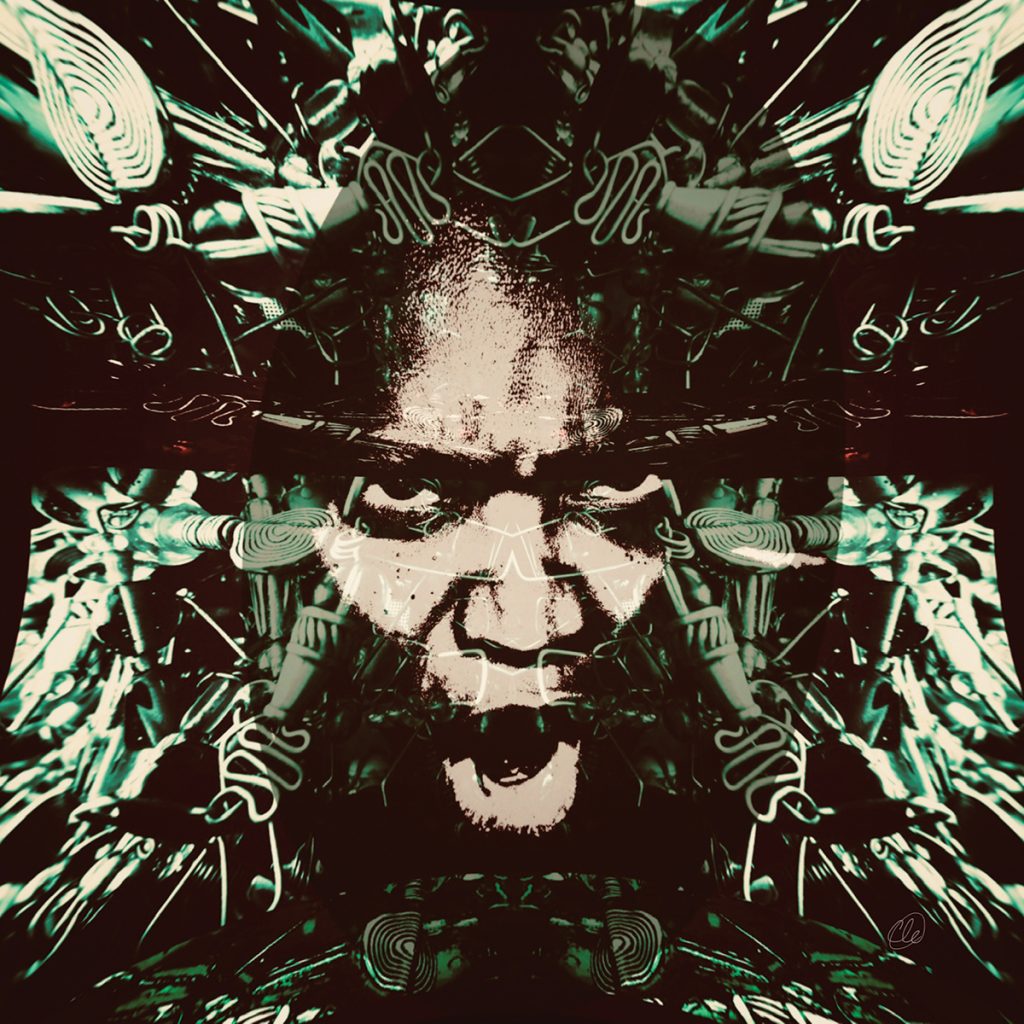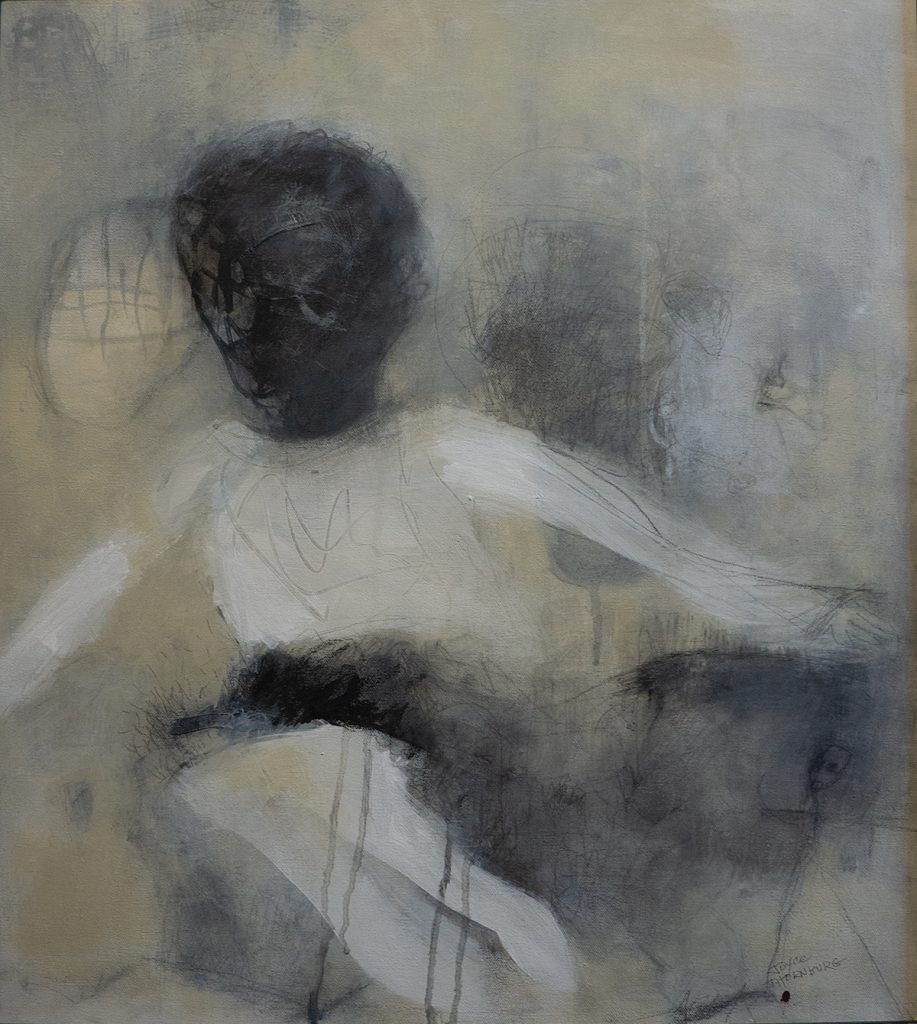By: Alli Marshall

Asheville-based folk healer/musician Jeff Firewalker Schmitt and keyboardist John Medeski (Medeski Martin & Wood) met deep in the Amazon jungle, where both had traveled to visit a healer. Bonding over an interest in native wisdom, they formed the musical project Saint Disruption.
While preparing for the release of new record Rose in the Oblivion, “John and I lamented that when a person gets an album now … you don’t have liner notes, you don’t have a CD insert, no jacket to look at,” says Schmitt. “We were like, ‘Let’s create a piece of art that involves community and also will be a standing work of beauty.’”
So Medeski and Schmitt made a list of visual artists in Asheville whose emotionality and textural style was a good fit for the album. “Almost to a person they said, ‘I’ve been sitting in my studio alone for 10 months and it would be great to do something collectively,’” says Schmitt.

Participants include Joyce Thornburg, Daniel McClendon, and Deanna Chillian, who created original works for the project. Jacqui Fehl modified an existing piece. Zach Stockdale and Scott Mills were each asked to encapsulate the whole album in an art piece.
For contributing artist Cleaster Cotton, the project reignited a crucial influence. When Cotton was a grade-school student in Brooklyn, the Last Poets would come to her school and perform. “She learned poetry from Umar Bin Hassan, who’s on our album,” says Medeski. “He basically set her life — these are her words — in the direction it’s gone.”
Rose in the Oblivion is a tribute to the Last Poets, a spoken-word/hip-hop collective that formed in the late 1960s. The tightly crafted recording journeys through the current sociopolitical climate: “Last Poet First / Ukupacha,” for example, is a shout-out to those who champion justice. The tracks include contributions from Asheville-based musicians such as Leeda “Lyric” Jones, Debrissa McKinney, Secret Agent 23 Skidoo, and others.

In his bid to intertwine visual art and music, Schmitt was able to reunite Cotton and Bin Hassan. “Umar was so touched by seeing this great artist who he’d influenced so deeply,” Schmitt recalls.
Cotton was the student-body president at Junior High School 271 in Brooklyn, which was the focus of the Ocean Hill-Brownsville Teachers’ Strike of 1968, when Black and Puerto Rican parents organized for better schools. (She recalls having to crawl under barricades to get to class.) One of the leaders of the strike, Jitu Weusi, helped to create The East, an arts organization that became the Brooklyn hub for the Last Poets, according to Cotton.
“At the time, I thought they were fly and fabulous, but I didn’t know how famous they’d become,” says Cotton, a painter and photographer. Reuniting with Bin Hassan, she says, “feels like family. He’s a container of lived experiences.”
The art book will be available to all who purchase the album and will also be sold independently, with artists receiving a percentage of print sales. For more information, see saintdisruption.com.